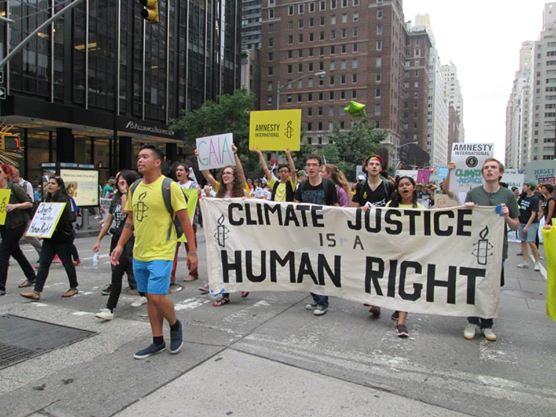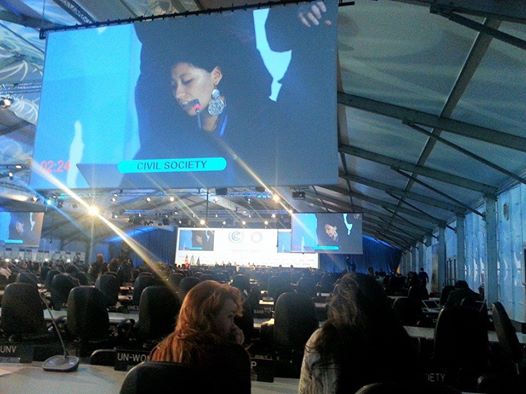
Gender Equality in the Paris Implementation Guidelines
05/09/2018

LIMA, PERU (December 5, 2014)– As the SBI came to a close in Lima, the Women and Gender Constituency reacted to progress on a new work programme to support implementation of gender-responsive climate policy. Mirna Inés Fernández of Bolivia, underscored the critical importance of gender equality to climate policy. DOWNLOAD here.
We are pleased that Parties, under SBI agenda item 16, were able to come to a decision on advancing work on the implementation of gender responsive climate policy. As our Constituency has stated in many interventions in these halls, failing to implement solutions that take into account the critical role of women and the importance of gender equality undermines climate action. This new work programme should work to support implementation of the many gender related mandates which exist under the UNFCCC, and we thank all Parties who worked to advance this issue and appreciate the leadership of Malawi on behalf of the LDCs for putting forward a strong foundation for negotiations.
While we are ready to work with Parties to advance this new work programme, we underscore that when we discuss advancing gender-responsive climate policy, we are speaking about more than gender balance, we are working to achieve gender equality. We are working to ensure that all individuals’ rights, needs and perspectives are taken into account to address the significant gender gaps which exist in leadership, decision-making, health, education, and access to resources and finance. These gender gaps hinder our ability to achieve just and sustainable climate action. We regret some Parties’ refusal to support agreed language in this Convention on gender equality. We feel it is important to highlight the strong leadership of Mexico in pushing to ensure real transformation through the advancement of gender equality throughout and in the final moments of these discussions.
The Women and Gender Constituency continues to emphasize the importance of including gender equality as a guiding principle in all climate policies and actions, and we urge Parties to adopt this wording in future decisions. The work is not done. The urgency of this issue cannot be understated. Strong action on climate change is crucial and only possible when we acknowledge the need to address gender equality in national and subnational implementation.
As Typhoons once again approach the Philippines, threatening lives and livelihoods, we reiterate that our work here is about demanding Parties reflect the realities of those who are already suffering the impacts of climate chaos. From those working to build resilience to adapt to climate impacts, to the losses of culture, ecosystems and livelihoods which can never be recovered. The urgency of our planetary emergency is completely missing in Lima.